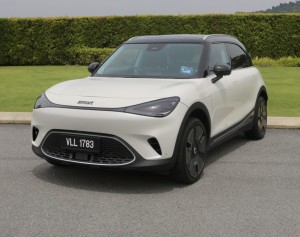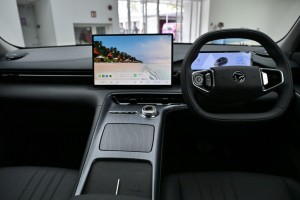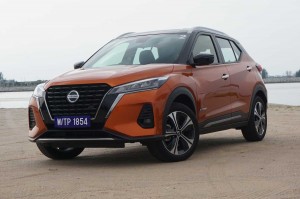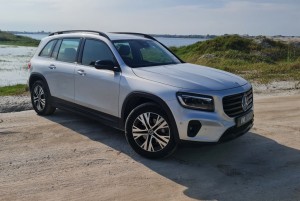Hyundai Motor, SK On plan US$5bil EV battery plant in US
By BLOOMBERG | 25 April 2023
WASHINGTON: Hyundai Motor Group and SK On Co. will spend as much as US$5 billion in North America for the production of electric car batteries as President Biden’s green bill encourages companies along the EV supply chain to make investments there.
The South Korean firms will have an equal shareholding in the plant, to be constructed in Bartow county, Georgia. It’s expected the facility will produce EV battery cells starting in the second half of 2025.
The new plant should have an annual production capacity of 35 GWh of EV battery cells, enough to produce 300,000 all-electric vehicles.
The joint venture "further accelerates the group’s electrification efforts and bolsters its position as an EV leader in the US market with a stable battery supply,” Hyundai said in a statement.
The carmaker signed a memorandum of understanding with SK On to secure battery supply for North America last November.
Affiliate Hyundai Mobis will assemble battery packs using cells from the planned plant, then supply them to Hyundai Group’s US manufacturing facilities for the production of models including the Ioniq 5, the Kia EV6 and the Genesis GV60.
Biden’s Inflation Reduction Act enacts large-scale subsidies for low-carbon industries, particularly through production tax credits.
It’s seen a slew of global automakers and EV battery makers step up investment plans in the US, where certain electric cars will be eligible for up to US$7,500 in credits if they meet requirements that battery components or critical minerals are sourced from North America or US free trade partners.
Hyundai was among automakers excluded from that US$7,500 credit because it failed to meet a critical requirement of having an operational EV plant in the US.
Hyundai is planning to start operating its EV plant in Georgia in the US as early as the end of 2024.
Separately, Hyundai Motor announced first-quarter profit that beat analyst estimates.
Operating profit for the three months ended March 31 increased 86% year-on-year to 3.6 trillion won (RM12bil), beating the 2.8 trillion won (RM9.3bil) mean estimate compiled by Bloomberg. Revenue rose 25% to 37.8 trillion won wihle the carmaker’s gross margin was 20.4%, ahead of the 18.2% the market was looking for.
"The strong sales mainly stemmed from the improvement of production as chip and component supplies stabilised worldwide,” Hyundai said.
It added it sees "persistent external factors, such as expanding inflation and fluctuation of raw material costs and interest rates due to geopolitical issues.”
Analysts are forecasting a record profit for Hyundai for 2023 as easing global supply chain pressures work to free up shipments of deliveries that were delayed during the pandemic.
Hyundai is expanding its market share particularly in Southeast Asia with its lineup of electric cars and sports utility vehicles, according to Kota Yuzawa, an analyst at Goldman Sachs Group Inc.
While Southeast Asia’s car market "has been dominated by Japanese carmakers historically, a lack of competitive Japanese EV models until 2025 will pose opportunities for Hyundai,” Yuzawa said.
Tags
Autos Hyundai
Reviews

6.8
Triumph Tiger 900 GT Pro: Multi-talented adventurer

Hyundai Ioniq 5 N: Born rascal

6.6
Husqvarna Svartpilen 401: Inspiring retro design

8.8
smart #1 (Premium): Agile, engaging, roomy, premium motoring

6.6
Suzuki V-Strom 250 SX: Multi terrain warrior

Proton e.MAS 7 impresses in quick dynamic driving exercises

Nissan Kicks e-Power: Kicking off a new efficiency

6.8
Mercedes-Benz GLB 200: Measured versatility
Videos

The Snowball – Lamborghini’s Heartwarming Christmas Story of...

EVOGO battery swapping solution showcased at IAA Mobility 20...

Jaguar's Bold Type 00 Concept: A Glimpse into the Future of ...
